Episode 114: When We Weaponize Self Awareness
Apple Podcasts | Spotify | Android Devices | RSS
What does it really mean to be self-aware?
This week we almost didn’t quite manage to draw a correlation between things we watched with our kids and self-awareness, but we got there.
Lightning McQueen is famously NOT self-aware in Cars, but by the time we get to Cars 3, which Nayla hasn’t seen (her homework), he’s a fully... developed... car…
Our topic is one that’s really woven into most of the conversations we have about leadership, career development, and being a better human: self-awareness.
Self-awareness is a set of conscious knowledge that we have about our internal landscape including things like our motives, values, priorities, beliefs, feelings, and motivations. It also includes an understanding of how those things shape our behavior and what that behavior does to other people.
We’re often led to understand that being self-aware enables all the rest of our leadership development. But sometimes, when we say we believe someone else needs to develop this competency, we may mean that we don’t like how they do things.
We may use the language of self-awareness when what we really mean is that we keep telling someone they need to adjust their behavior, but they’re not doing it. So, they must not be that self-aware.
But is that really true?
Self-awareness, true self-awareness, is at the heart of our growth and development but when we weaponize the language around self-awareness we run the risk of becoming afraid of it. It can create a great deal of defensiveness and can be silencing if we’re not careful in how we use it.
In his book Emotional Intelligence, Daniel Goleman references self-awareness as one of the key facets of emotional intelligence alongside things like social intelligence. But more often than not, people tend to refer to self-awareness as a catchall for the various pieces of emotional intelligence that we might see as areas for growth in someone.
So, if we notice that we feel the need to offer someone feedback that they’re struggling with self-awareness, we should also consider what specifically is bothering us. This is because that feedback often comes when we’re especially irritated, frustrated, or annoyed. So, we’ll want to do the inside work to define what’s really at play in our interactions with this person and whether those around us are having similar feelings or experiences with them.
It’s important to consider that self-awareness is internal and external because it includes an understanding of what we need and what we want for ourselves and how the behavior that springs from those internal experiences affects others.
When we feel someone lacks self-awareness we may believe that what we’ve determined are the professional norms of our company are being violated and that the person who is violating them lacks self-awareness. But in these instances, it’s important to consider if these are truly the widely accepted cultural norms of our company or just our own preferences and what we consider to be professional.
A misconception that may come into play here is that we can do an assessment or take training to become more self-aware, check that box, and be done.
But in reality, our goal is to develop tools, methods, and resources to allow us to become more self-aware and remain self-aware. Throughout our process of sustaining self-awareness, we continuously explore our internal landscape and the external impact we’re having. Along the way, we can equip ourselves with a process for staying tuned in to what’s happening.
On the other side of this coin, being told we lack self-awareness can really make an impact on us. We may find ourselves ruminating on this feedback for a while. So, we need to consider where we might begin to do that work and can start this process by asking, “How am I being experienced by others?” and “How aligned is that experience with my intentions?”
In asking these questions we can discover gaps between who we believe we are and the ways that others experience us that we want to work to address. It might be helpful to pursue coaching, other supportive relationships, and tools to build our self-awareness.
A final key consideration for developing our self-awareness or giving supportive feedback to someone else on their own is the power of specificity in this process. When we ask specific questions with precise context, we get better feedback. What works for us in one context may not serve us in another and that’s an important part of becoming more fully self-aware.
Self-awareness is so vital to our experience at work and beyond that beginning to do the inside work to foster and sustain our self-awareness is essential.
Resources Mentioned In This Episode:
Emotional Intelligence, Daniel Goleman
We’re Not Really Strangers, Self Love Edition
Start Stop Continue Feedback Approach, Tasha Eurich
Connect with us:
Love the Inside Job? Consider buying us a coffee!
Follow @insidejobpodcast on Instagram, LinkedIn, and Facebook
Email us with your questions, thoughts, or ideas for future conversations at info@insidejobthepodcast.com.
Subscribe to the Inside Job newsletter to receive exciting updates about our community and get exclusive access to coaching, extra content, our hosts, and each other.
Getting something out of our conversations? Show our podcast some love.
Please subscribe on iTunes, Spotify, or your favorite podcast app and tell your friends.

